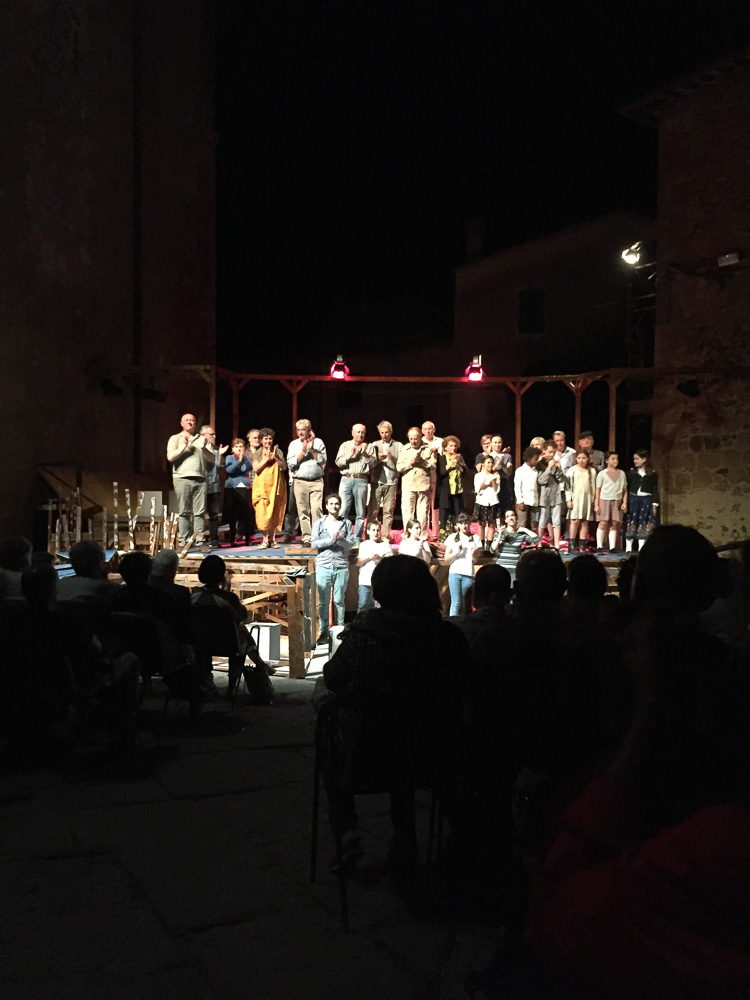
The Teatro Povero di Monticchiello is, by its own description, “autodramma conceived, composed and staged by the people of Monticchiello.” Autodramma is a term coined expressly for the plays of Monticchiello: it is theatre performed every summer in the tiny medieval hill town’s piazza, acted by the town’s own residents (untrained, non-professional actors who often play themselves on stage) working from their own original script which treats of the close-to-home issues they collectively wish to examine that year. Every year the citizens gather, brainstorm ideas, decide on a theme, and then flesh it out with dialog into a script. The resulting play does not have a plot or characters per se; instead, it is a theatrical chorus in which the actors represent points of view in a dialogue around the central theme, which is explored in relation to the village’s past and then to its present, and finally discussed and debated in light of how things have changed over the years. Sets and costumes are minimal, often only suggested by a symbolic object.
The first plays in Monticchiello were performed in the late 1960s. Post-war, recovering Italy was growing more urban, industrial, fashionable, and wealthy, and rural towns such as Monticchiello, which owed centuries of their existence to the agricultural system of sharecropping (mezzadria) that was outlawed in the early 1960s, were depopulating by up to 75% as the younger generation headed for the cities. The plays were not intended to create income for the community or to attract tourists (tourism didn’t much exist in the Val d’Orcia at that time); instead, the plays were the citizens’ way of reflecting on the transformations that were devastating their way of life, and dealing with them. They were a form of resistance, a rallying declaration to themselves and to their city-magnetized children that their town had survived threats, invasions, and upheavals in the past, and could do so again. In those early days, they say that the greatest Italian film directors – names like di Sica and Fellini – came to Monticchiello to observe the Teatro Povero.
The week prior to attending a performance in Monticchiello, I spent a day at the Biennale di Venezia. The difference between the two experiences could not have been more pronounced. The Biennale is suffused with world-level politics and so, so much money; most of the exhibits were interesting but spoke on a scale that made them irrelevant to little me. In contrast, the Teatro Povero moved me, because it is art that is immediate and local, with no glitz or glamour: it brings a human-scaled community together, giving ordinary people a way to analyze and express their experiences and attitudes, and allowing them to emerge from the process perhaps better able to face the difficulties of their existence. Yes, there is money involved, here, too – but honest money that is brought to the local economy by the play’s spectators, who dine in town before the show and purchase reasonably-priced goods from the few shops. The theatre is organized as a cooperative, and the townspeople make a point of insisting that not one of them is profiting off of this tradition. There are no yachts, no cruise ships, no elite high-fashion brand-name boutiques, no corporate sponsors hanging banners off the facades of the churches. Just a community of ordinary individuals who want to say something.